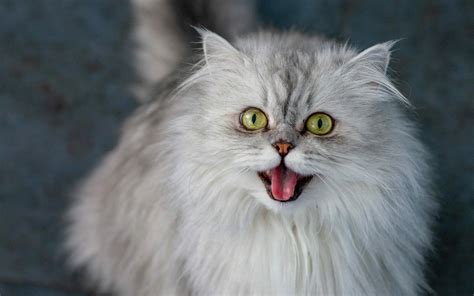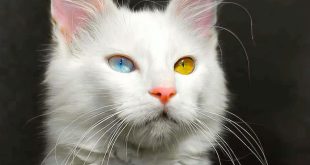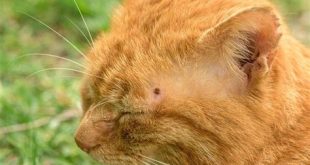The Persian cat, known for its luxurious long fur, distinctive round face, and calm temperament, is one of the most beloved and recognizable cat breeds in the world. These cats are known for their beauty and gentle nature, making them popular as companion animals. However, owning a Persian cat requires specific care to maintain their health, appearance, and overall well-being. From providing the best food to understanding their lifestyle needs, this guide covers everything you need to know about taking care of your Persian cat.
Best Food for Persian Cats
A well-balanced diet is essential for a Persian cat to thrive. Persian cats have specific nutritional needs that support their long fur, delicate skin, and overall health. When choosing the best food for your Persian cat, consider the following factors:
-
High-Quality Protein: Like all cats, Persians are obligate carnivores, meaning their diet should be rich in high-quality animal protein. Look for wet or dry food that lists real meat (such as chicken, turkey, or lamb) as the first ingredient. Protein supports muscle development and overall bodily functions, which is crucial for their health.
-
Omega Fatty Acids: Persian cats have long, dense coats that require extra care. Omega-3 and Omega-6 fatty acids, which are often found in fish oils, can help maintain the health and shine of their fur. These essential fatty acids also help reduce shedding and skin irritation, which can be a common concern for Persians due to their thick coats.
-
Moderate Carbohydrates and Fiber: Persian cats are not as active as some other breeds, so they don’t require excessive carbohydrates in their diet. However, some fiber is important for digestion and to help prevent hairballs, a common issue for Persian cats due to their long fur. Look for foods that contain digestible sources of fiber like pumpkin or sweet potatoes.
-
Hydration: Persians are prone to urinary tract issues, so ensuring they stay well-hydrated is important. Wet food can be a great way to keep your Persian hydrated, as it contains more moisture than dry kibble. Fresh water should always be available, and some Persian cats may benefit from a water fountain to encourage drinking.
-
Portion Control: Persian cats can be prone to obesity if they are overfed, so it’s essential to measure their food portions according to their age, weight, and activity level. Overfeeding can lead to health problems such as diabetes or joint issues, so following feeding guidelines on food packaging or advice from your vet is key.
Life and Activity of a Persian Cat
Persian cats are known for their relaxed and calm demeanor. They enjoy lounging and spending time in quiet, peaceful environments, making them ideal companions for people who prefer a laid-back lifestyle. While they are not overly energetic, they still need regular playtime and mental stimulation to prevent boredom.
-
Activity Level: Persian cats are generally not as active as other breeds. They enjoy short bursts of play but are not as energetic as, say, a Bengal or Maine Coon. They tend to enjoy a relaxed environment, where they can curl up in a cozy spot and watch the world go by. A few short play sessions with toys or gentle interaction with their human companions will keep them content.
-
Socialization: Persian cats are affectionate but tend to be more independent and reserved compared to other breeds. They enjoy human companionship but may not demand constant attention. It’s important to respect their space and allow them to initiate affection. Socialization with other pets and people should be gradual, as Persians tend to be less tolerant of sudden changes or loud environments.
-
Lifespan: Persian cats typically live between 12 to 16 years, although some can live even longer with proper care. Their lifespan can be influenced by factors such as genetics, diet, and general health. Regular veterinary checkups and a healthy lifestyle can help ensure your Persian enjoys a long, happy life.
Care for Persian Cats
Caring for a Persian cat requires attention to their grooming, health, and overall well-being. Their long, luxurious coat, while stunning, requires regular maintenance to keep it in top condition.
-
Grooming: Persian cats have long, thick coats that require daily brushing to prevent matting and tangling. Regular grooming helps to reduce shedding and prevent hairballs, which are common in long-haired cats. You should brush your Persian’s coat at least once a day using a wide-toothed comb or a specialized cat brush. Pay special attention to the areas behind the ears and around the neck, as these areas are prone to tangling.
-
Bathing: While Persian cats do not require frequent baths, occasional bathing (about once a month or as needed) can help keep their coat shiny and remove dirt or oil buildup. Use a gentle, cat-friendly shampoo designed for long-haired breeds, and make sure to dry their coat thoroughly after the bath.
-
Dental Health: Dental hygiene is essential for Persian cats. They can be prone to dental issues like gum disease or tartar buildup. Brushing your cat’s teeth a few times a week using a cat-specific toothbrush and toothpaste will help maintain their oral health. You can also provide dental treats to assist in cleaning their teeth.
-
Eye Care: Persian cats are known for having large, expressive eyes, but this can sometimes lead to excessive tearing or discharge. Regularly wiping away any eye discharge with a soft, damp cloth can help prevent staining around the eyes. If you notice frequent or excessive eye discharge, consult your vet to rule out any underlying issues.
-
Health Monitoring: Persian cats are generally healthy, but they can be prone to certain genetic health issues, such as respiratory problems due to their flat faces (brachycephalic), kidney disease, and heart conditions like hypertrophic cardiomyopathy. Regular veterinary visits are essential to monitor for these conditions. Routine vaccinations, flea and tick prevention, and regular parasite control should also be part of your cat’s health regimen.
-
Environmental Enrichment: Persian cats are more likely to be indoor cats, and it’s important to provide them with a stimulating environment. Set up comfortable resting spots, scratching posts, and interactive toys to keep your Persian entertained. Climbing structures or perches are also great additions to help satisfy their natural instincts without requiring excessive physical activity.
Conclusion
Persian cats are a delightful breed known for their beauty, calm demeanor, and affectionate nature. To ensure your Persian cat lives a long, happy life, it is essential to provide them with the best food, care, and attention. A balanced diet rich in protein and omega fatty acids will support their health and coat, while regular grooming and dental care will keep them looking and feeling their best. By offering a calm environment, regular play, and proper healthcare, your Persian cat will thrive and be a loving companion for many years to come.
 PAWS AND WHISKERS PET CARE
PAWS AND WHISKERS PET CARE




